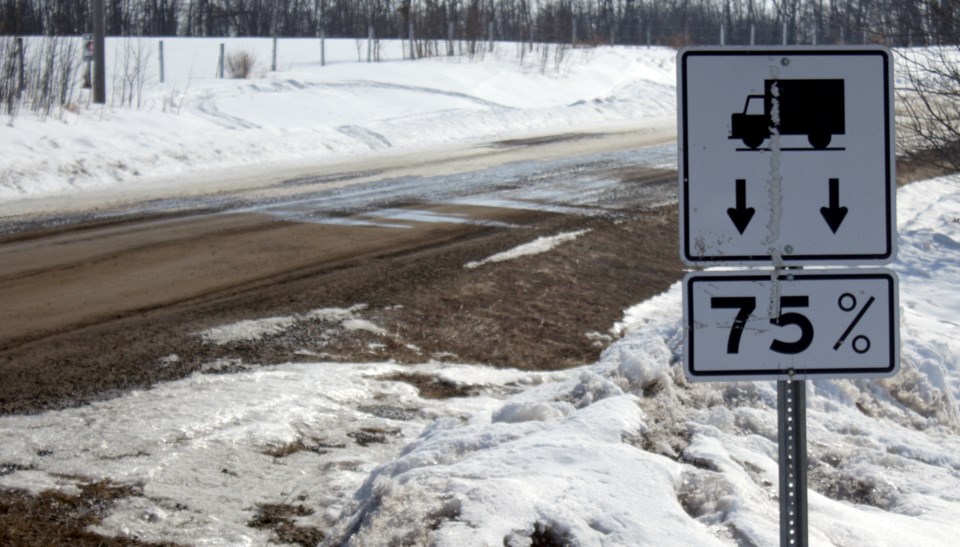WESTLOCK — Westlock County has stopped issuing road ban exemption permits this year and is in the process of replacing them with agreements that would allow unrestricted hauling on county roads at a cost.
Councillors first voted to introduce the new system during budget deliberations in December and saw the new policy at a governance and priorities meeting Jan. 27. They’ll vote to instate it at their next regular meeting Feb. 9.
Starting this year, haulers will be required to enter into an agreement with the county that specifies what roads can be used, how many times, and the bond in dollars that the hauler will be responsible for during road bans.
The bond will be calculated based on number of loads, distance and road type. The base starting price for gravel roads is $7,500; $10,000 for oiled roads; $14,000 for paved roads; and $1,000 for other roads. The more weights are to be carried and the longer the distance, the higher the bond will be based on the type of roads used.
“I think we’ve got a good direction with this because our staff has to go out there and survey the road, do all those things to make sure we’re protecting our infrastructure,” said reeve Jared Stitsen.
The fees are meant to recover the costs of maintaining roads and “respond to the use of local road infrastructure that falls outside normal wear and tear.” Inspections will be conducted before and after a haul is completed that’ll determine how much damage was done and how much of the bond will be returned — 50 per cent is non-refundable.
The county recognizes seven categories of haulers that might need road use agreements, all of which will follow the same bond calculations. All but the oilfield industry are eligible for a 50 per cent reduction in bond costs if they supply their own motorgrader to do any necessary road work once the hauling is finished.
Coun. Lou Hall wanted to incorporate a clause that would see issuance of agreements to oilfield companies tied to their property tax payment record.
“I would think we would need to check that if these people are applying for a bond, that we would check to make sure that they don’t owe anything to the county,” she said, since unpaid taxes from oil and gas companies is “the biggest problem we’re having in the province of Alberta.”
Stitsen says he’s heard references to something similar in other contexts, and that provincially there is talk of at least verifying whether oil and gas companies pay their taxes in some jurisdictions but are in arrears in others.
Interim CAO Rick McDonald said it would be “very challenging” to tie the two together.
The agreement applies only on roads that have bans in place to limit the weight that can be hauled, and are usually instituted in springtime during snowmelt. With an agreement, a hauler can carry 100 per cent of the legal axle weight.
The county says it costs about $7,500 per mile to gravel a road, $36,000 per mile to do a shoulder pull, and $600,000 per mile for a full gravel road rebuild.



